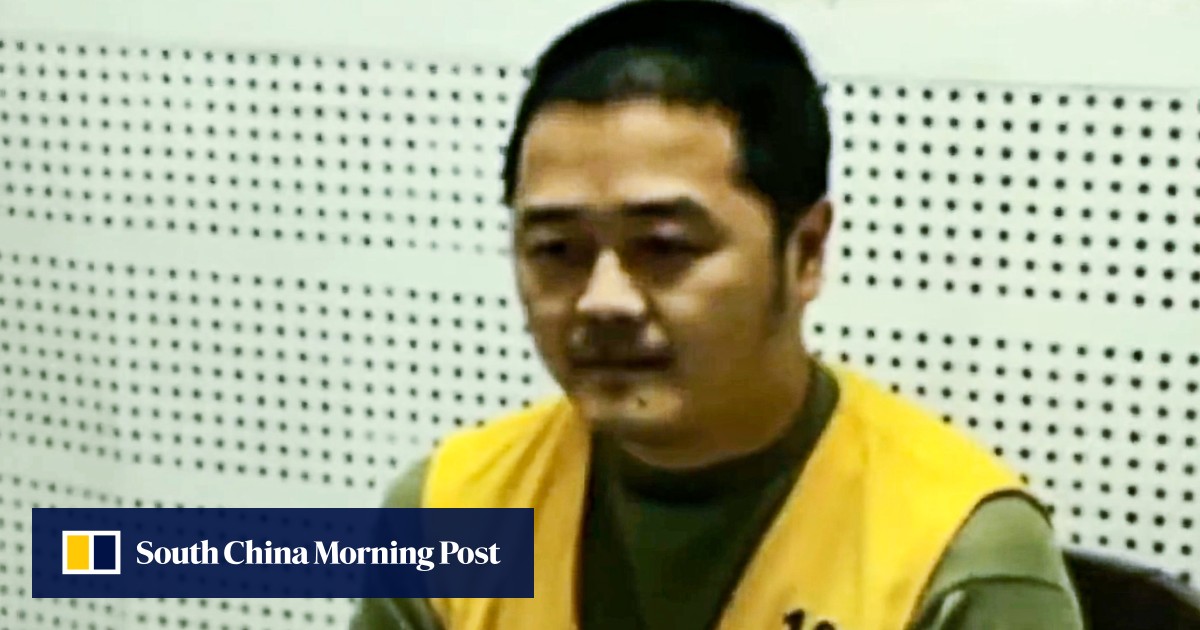According to the documentary, Huang Yu, then a researcher at a top secret communication system development project, sent a note to “the website of a certain country’s spy agency” containing classified Chinese military codes.
Huang was bitter after being removed from a unit that was working on the project due to poor work performance and had indicated he wanted to defect, the report said.
After the authenticity of the codes had been confirmed, Huang was recruited by the unnamed foreign spy agency and given training in Hong Kong and Bangkok. The documentary said he not only sold “core secrets” through his work, but also duped his wife – an employee at the same institution – into copying confidential material so he could pass it on in return for additional payments.
Huang was said to have leaked “a shocking amount” of confidential information about the communication systems used by the Communist Party, government agencies, the military and industries such as finance and telecoms. These included design, technical specifications, secret algorithms, source codes and programmes, the documentary said.
China says it detained ‘foreign spy’ accused of passing secrets to MI6
China says it detained ‘foreign spy’ accused of passing secrets to MI6
Huang was handed the maximum penalty for spying that caused “serious harm” to China’s national security and was executed in May 2016.
Cheng had been paid NT$2.76 million (US$85,467) by the Taiwanese government to steal intelligence-related research reports and identify potential infiltration targets during multiple visits to the mainland, according to the documentary.
Cheng had previously worked as an assistant to Cho Jung-tai, the former secretary general of the Taiwan cabinet, who has been selected to be the island’s next premier.
Meng, the former chief financial officer of Chinese telecoms equipment giant Huawei Technologies had been detained in Canada on a US warrant, which the documentary said showed how China had fought the West’s long-arm jurisdiction and efforts to undermine the country’s political stability.
Quoting media reports that Spavor reached a C$7 million (US$5 million) settlement with the Canadian government in March this year, the documentary said Canada’s “slander” in labelling their cases as “arbitrary detentions” had been “self-defeating”.

The documentary concluded with what Chinese regulators have called a “rectification” of Shanghai-based consultancy firm Capvision Partners. The due-diligence company had been raided by authorities last year over national security risks in areas such as defence, technology, energy and resources, and medicine.
China said some of Capvision’s clients had close relationships with foreign governments and military intelligence agencies.
“After foreign countries mastered this important and sensitive information, they implemented precise sanctions on a series of Chinese companies, causing significant harm to our country’s industrial development and economic security,” the programme said.
Hong Kong leader vows to bolster intelligence gathering after Article 23 law
Hong Kong leader vows to bolster intelligence gathering after Article 23 law
He said China’s national security agencies will focus on major and outstanding risks, including “anti-subversion, anti-hegemony, anti-separatism, anti-terrorism, and anti-espionage struggles”.
Also on Monday, a commentary in the Communist Party mouthpiece People’s Daily said China has made breakthroughs in safeguarding national security in the past decade, making it a leading country “with the best sense of security”.
“We have withstood and fought back against extreme external suppression and containment, and on a series of major issues involving Hong Kong, Taiwan, Xinjiang, Tibet, maritime affairs, and human rights, we have fought hard and won one tough battle after another,” it said.






)
